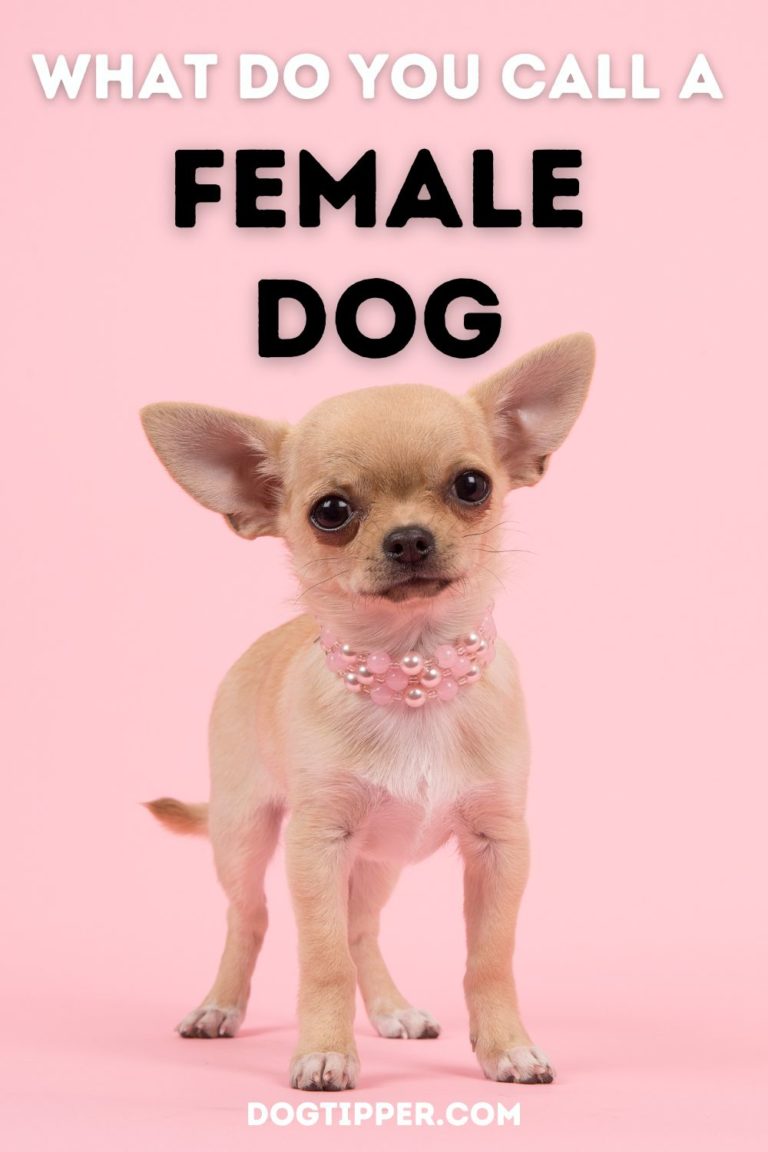Introduction: Unveiling the Feminine Side of Canines
Many dog lovers, especially those new to the canine world, often find themselves wondering, "What is a female dog called?" Understanding the proper terminology for male and female dogs is a fundamental aspect of dog ownership. This comprehensive guide will delve into the various terms used to refer to female dogs, exploring their origins, nuances, and cultural significance.

Source www.dogtipper.com
Section 1: The Common Terminology
1.1 Bitch: A Historical Perspective
The term "bitch" has been used for centuries to denote a female dog. Its origins can be traced back to the Middle English word "bicche," which means "female dog." While it has traditionally been considered a derogatory term, the word "bitch" is now regaining its neutral and even positive connotations, especially within the dog-loving community.
1.2 Female Dog: A Universal Designation
The term "female dog" is a broad and inclusive way to refer to a female canine. It eliminates any potential negative associations with other terms and is commonly employed in scientific, medical, and veterinary contexts.
Section 2: Formal and Informal Titles
2.1 Dam: The Mother of Puppies
The term "dam" is specifically used to describe a female dog that has produced offspring. It is commonly found in breeding records and pedigrees, highlighting the mother's role in the lineage of a particular litter.
2.2 Sire: The Father of Puppies
The term "sire" is the masculine counterpart to "dam" and is used to refer to the male dog that is the father of a litter. Together, the dam and sire are known as the parents of the puppies.
Section 3: Regional Variations
3.1 Lass: A Scottish Charm
In Scottish and Northern English dialects, the term "lass" is affectionately used to refer to a female dog. It conveys a sense of familiarity and endearment, capturing the playful and spirited nature of many female canines.
3.2 Wench: An Old-Fashioned Term
The term "wench" was once commonly used to describe a female dog, particularly in rural areas. Its usage has declined over time, but it can still be heard in some traditional communities.
Section 4: Breed-Specific Names
4.1 Vixen: A Sly and Cunning Female Fox
The term "vixen" is specifically used to refer to a female fox. It is known for its cleverness, cunning, and agility, qualities that are often attributed to female foxes.
4.2 Doe: A Graceful Female Deer
The term "doe" is used to denote a female deer. It is a term commonly employed in hunting and wildlife management contexts, highlighting the elegant and graceful nature of female deer.
Section 5: Comparisons with Male Dog Terms
| Term | Female Dog | Male Dog |
|---|---|---|
| General | Female Dog | Male Dog |
| Formal Title | Dam | Sire |
| Informal | Bitch, Female Dog, Lass | Dog, Male Dog |
| Breed-Specific | Vixen (fox), Doe (deer) | Dog, Male Dog |
| Derogatory | Bitch | Dog |
Conclusion: Embracing the Female Canine Identity
Understanding the various terms used to refer to female dogs enriches our appreciation for the diversity and unique characteristics of this beloved species. Whether you prefer the common term "bitch" or opt for a more formal title like "dam," choosing the right terminology can help foster a respectful and meaningful connection with your furry companion. As you explore the world of dog ownership, we encourage you to delve into our other articles, where you'll discover a wealth of knowledge and insights into the fascinating realm of canine behavior, health, and well-being.
FAQ about female dog
1. What is the correct term for a female dog?
Answer: The correct term for a female dog is "bitch."
2. Is there a more polite term for "bitch"?
Answer: Yes, "dam" is a more polite term for "bitch."
3. What is a spayed female dog called?
Answer: A spayed female dog is called a "spayed bitch" or "spayed dam."
4. What is a female puppy called?
Answer: A female puppy is called a "bitch puppy" or "dam puppy."
5. What is a group of female dogs called?
Answer: A group of female dogs is called a "brace of bitches" or "brace of dams."
6. What is the lifespan of a female dog?
Answer: The lifespan of a female dog varies depending on breed, size, and care. On average, female dogs live between 10 and 13 years.
7. What are some common health problems in female dogs?
Answer: Some common health problems in female dogs include urinary tract infections, mammary cancer, and obesity.
8. What are some tips for caring for a female dog?
Answer: Some tips for caring for a female dog include providing her with a healthy diet, exercise, and regular veterinary checkups.
9. What are some interesting facts about female dogs?
Answer: Some interesting facts about female dogs include that they are generally more trainable than male dogs, they have a stronger sense of smell, and they are often more protective of their puppies.
10. What are some famous female dogs?
Answer: Some famous female dogs include Lassie, Rin Tin Tin, and Hachiko.
What Did Luka Say To Snoop Dog? is a question that has been asked by many people. The answer is not as simple as you might think.